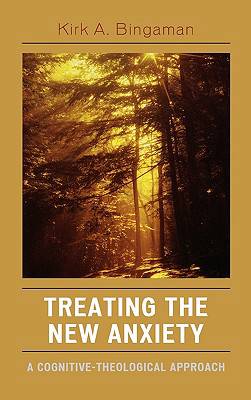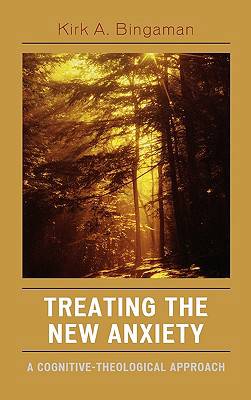
- Afhalen na 1 uur in een winkel met voorraad
- Gratis thuislevering in België vanaf € 30
- Ruim aanbod met 7 miljoen producten
- Afhalen na 1 uur in een winkel met voorraad
- Gratis thuislevering in België vanaf € 30
- Ruim aanbod met 7 miljoen producten
Zoeken
€ 212,45
+ 424 punten
Uitvoering
Omschrijving
The post-9/11 age of supermodernity is characterized by an intensification of collective anxiety about the present and future state of the nation and the world. Our psychological and spiritual capacities are pushed to their limits. Through a cognitive-theological approach to the treatment of this intensified anxiety, Kirk Bingaman demonstrates that it is possible and indeed necessary to help those in our care to live meaningfully even in a time of great change and uncertainty.
Specificaties
Betrokkenen
- Auteur(s):
- Uitgeverij:
Inhoud
- Aantal bladzijden:
- 160
- Taal:
- Engels
Eigenschappen
- Productcode (EAN):
- 9780765704627
- Verschijningsdatum:
- 16/09/2007
- Uitvoering:
- Hardcover
- Formaat:
- Genaaid
- Afmetingen:
- 152 mm x 229 mm
- Gewicht:
- 399 g

Alleen bij Standaard Boekhandel
+ 424 punten op je klantenkaart van Standaard Boekhandel
Beoordelingen
We publiceren alleen reviews die voldoen aan de voorwaarden voor reviews. Bekijk onze voorwaarden voor reviews.











